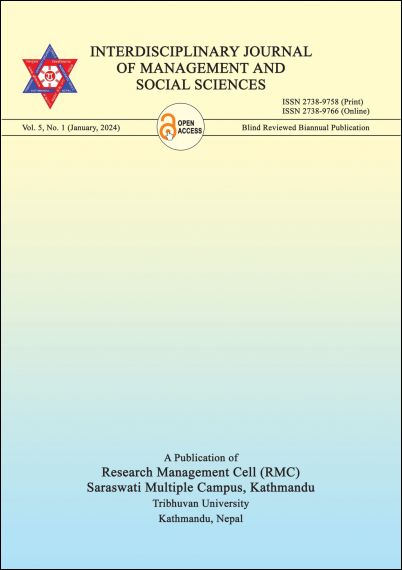Cameron’s Advocacy for Bio-Centric World-View in Avatar
DOI:
https://doi.org/10.3126/ijmss.v5i1.62662Keywords:
Anthropocentrism, biocentrism, energy crisis, environmental advocacy, environmental ethics, human-nature reconciliationAbstract
This article attempts to examine James Cameron’s movie, Avatar (2009) from the lens of eco-criticism. In particular, the article attempts to examine how Cameron advocates for the necessity of maintaining environmental ethics for nature conservation along with his critique of anthropocentrism throughout the movie. The movie presents a bleak future (mid-22ndCentury) condition of the earth having all the natural resources as already consumed up. With the help of technology, people, however, make their access to the Pandora, a fictional setting which is presented as the home of the Na’vi, and start exploiting natural resources mercilessly destroying their home-tree. To examine Cameron’s advocacy of environmental ethics in the movie, the research incorporates the philosophical ideas from eco-critical theory, especially incorporating theoretical insights from Edward O. Wilson’s “The Environmental Ethic” along with the ideas of other thinkers in the same line of argument. This study is significant as it shows how a literary work like a movie can make advocacy for environmental ethics and critiques anthropocentric hubris that jeopardizes the earth ultimately that Cameron makes through the portrayal of a nature-loving protagonist, Jake Sully. This article, ultimately justifies Avataras an epic movie alerting the humanity of the possibility of the bleak future in the world as a result of Anthropocene, and appeals for the urgency of maintaining environmental ethics to avoid the danger.
Downloads
Downloads
Published
How to Cite
Issue
Section
License

This work is licensed under a Creative Commons Attribution-NonCommercial 4.0 International License.

